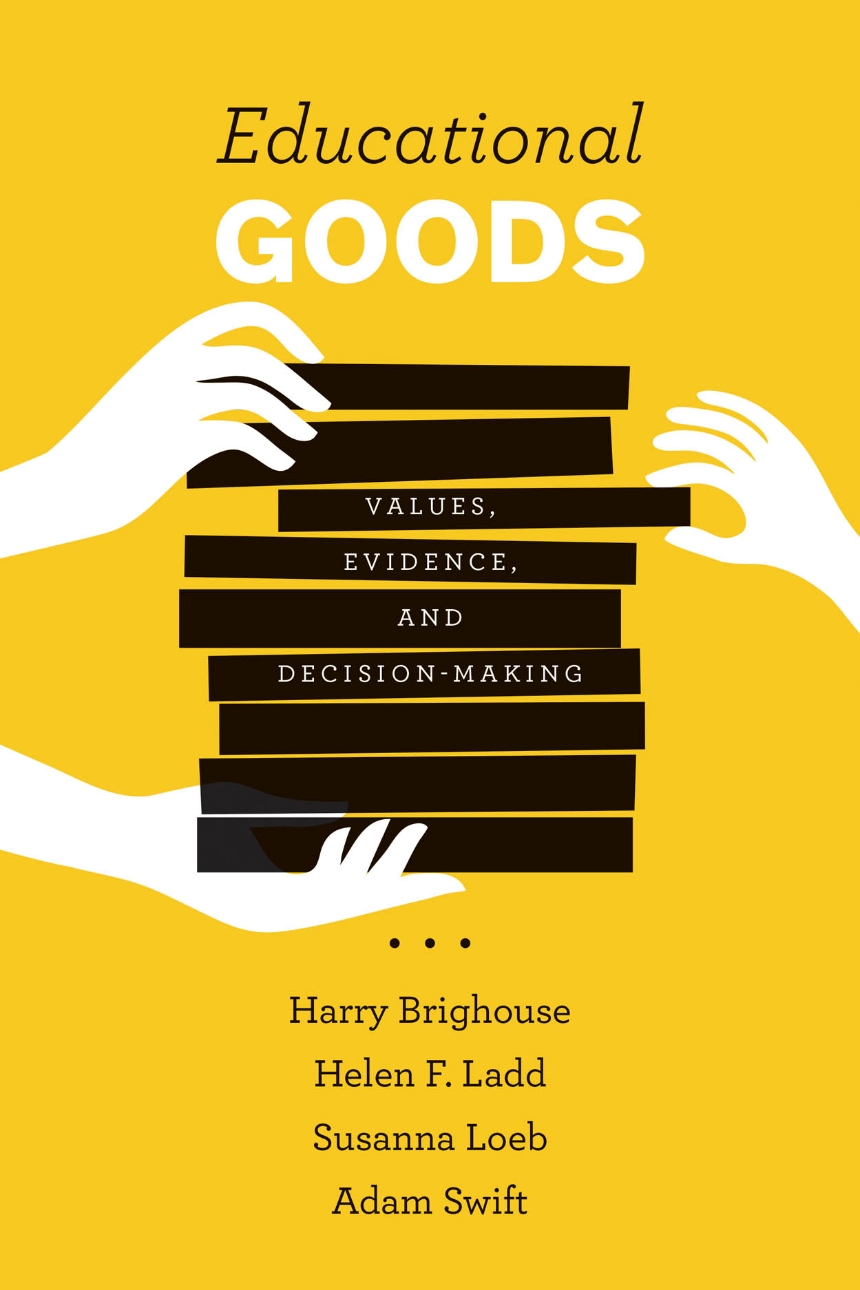Educational Goods
Values, Evidence, and Decision-Making
In Educational Goods, two philosophers and two social scientists address this very question. They begin by broadening the language for talking about educational policy: “educational goods” are the knowledge, skills, and attitudes that children develop for their own benefit and that of others; “childhood goods” are the valuable experiences and freedoms that make childhood a distinct phase of life. Balancing those, and understanding that not all of them can be measured through traditional methods, is a key first step. From there, they show how to think clearly about how those goods are distributed and propose a method for combining values and evidence to reach decisions. They conclude by showing the method in action, offering detailed accounts of how it might be applied in school finance, accountability, and choice. The result is a reimagining of our decision making about schools, one that will sharpen our thinking on familiar debates and push us toward better outcomes.
192 pages | 8 halftones, 4 line drawings | 6 x 9 | © 2018
Education: Education--Economics, Law, Politics, Philosophy of Education, Pre-School, Elementary and Secondary Education
Philosophy: Ethics, Philosophy of Society
Reviews
Table of Contents
List of Figures
Preface and Acknowledgments
Introduction
Part 1 Values
1 Educational Goods
2 Distributive Values and Independent Values
3 Achievement as an Educational Good
Part 2 Decision Making
4 Combining Values and Evidence
5 School Finance
6 School Accountability
7 School Autonomy and Parental Choice
Conclusion
Notes
Bibliography
Index
